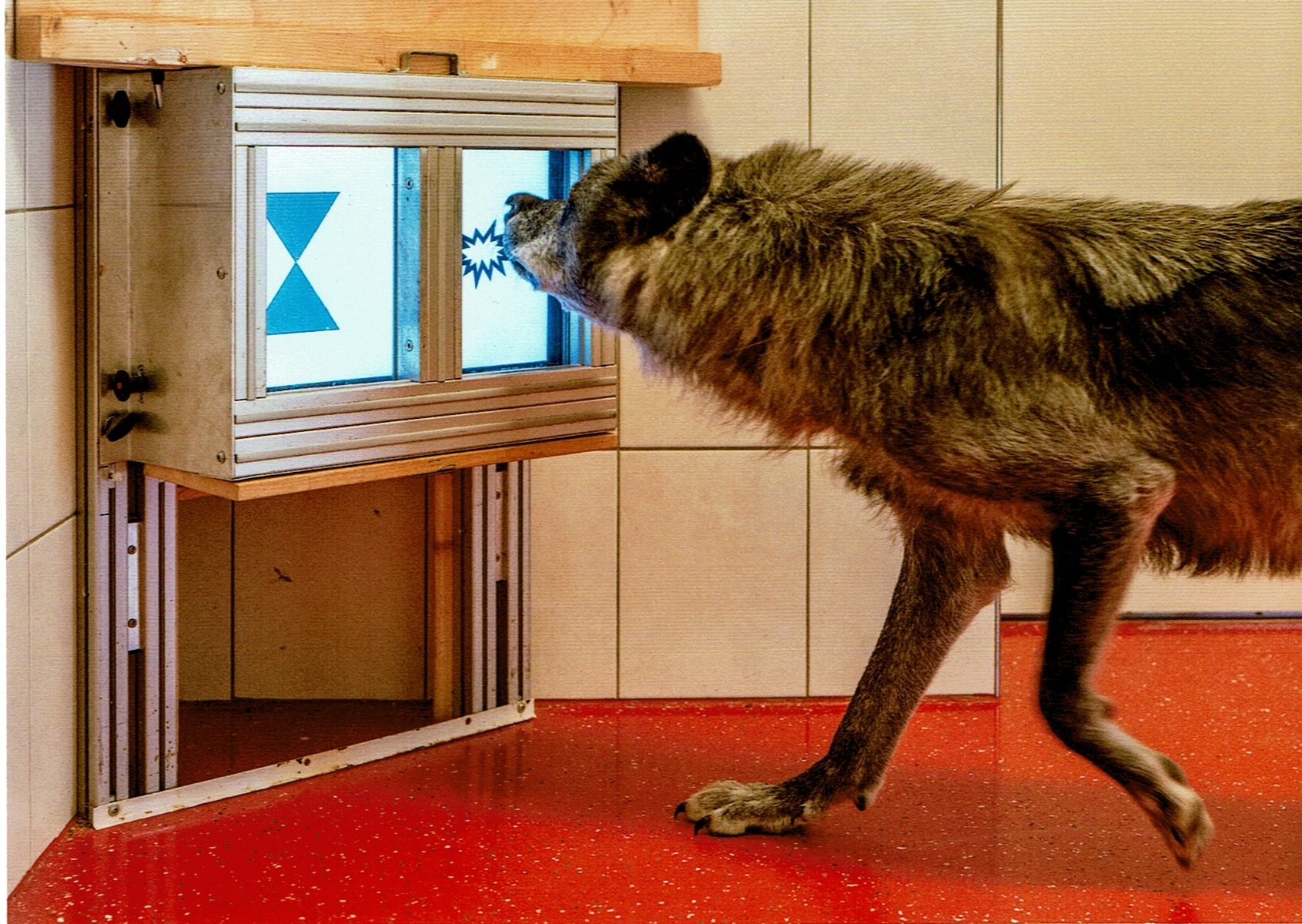When it comes to generosity, wolves win tales down. A scientific study led by Rachel Dale, animal behaviour specialist at the Wolf Science Center in Vienna, Austria, determined that wolves are more apt to provide treats for other wolves than dogs are to other dogs.
The Center hand-raises wolves and dogs and then conducts tests involving coöperation and cognition in an effort to understand the differences and commonalities of the two species.
A recent study testing coöperation placed a wolf or a dog in a room with a touch screen containing a couple of images. Another wolf or dog was placed in an adjacent room that was visible to the animal being tested.
When the test animal pressed the “giving” symbol, their partner in the other room received a treat. Wolves nudged the symbol with their nose far more often than the dogs.
As a control, sometimes the partner was placed in a room where it wouldn’t receive a reward even if the giving symbol was pushed. Wolves pressed the symbol less under those circumstances.
But they pressed the symbol even more if they knew the wolf in the adjacent room and saw it get a treat. Dogs were less generous on all counts.
The results of the study indicate that domestication may have allowed dogs to lose their coöperative nature as they depend on humans for food, not other dogs.
Although the wolves used in the study are fed by humans, their genetic makeup is much closer to that of wild wolves and they appear to have retained their close bonds with and reliance on pack mates for survival.
Photograph by Rooobert Bayer, Wolf Science Center, Austria

